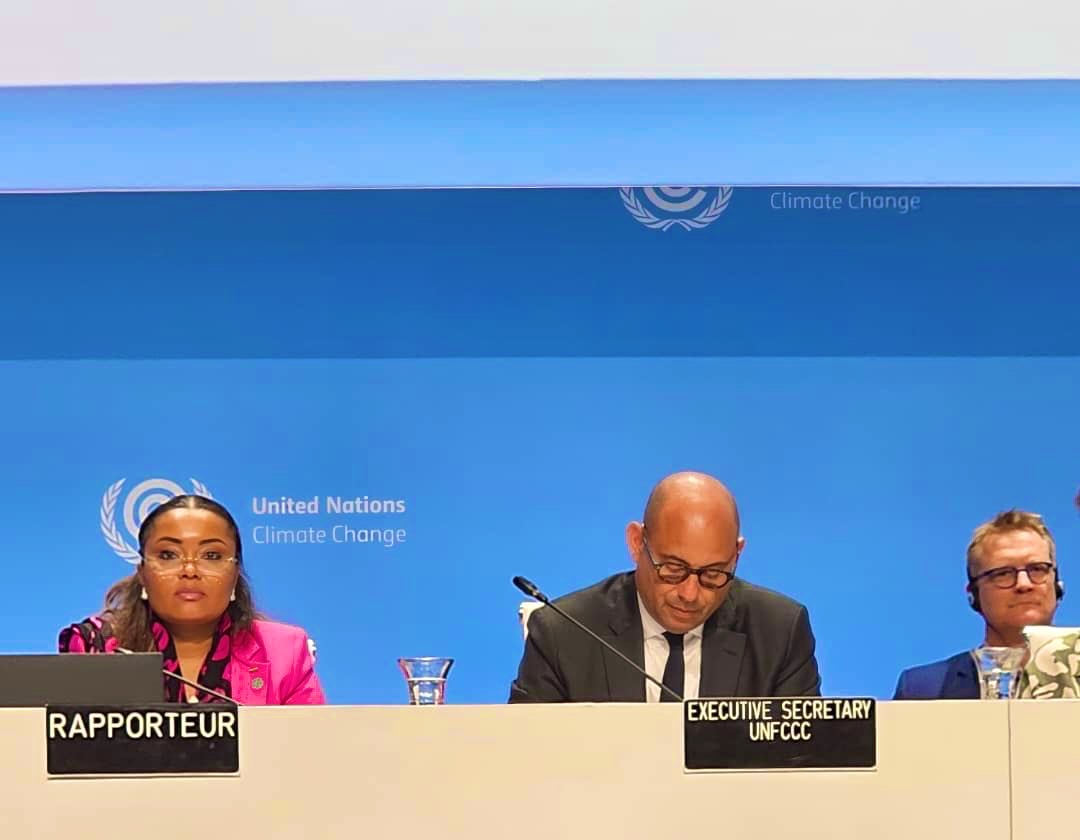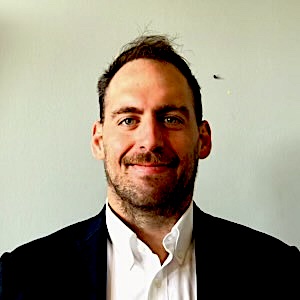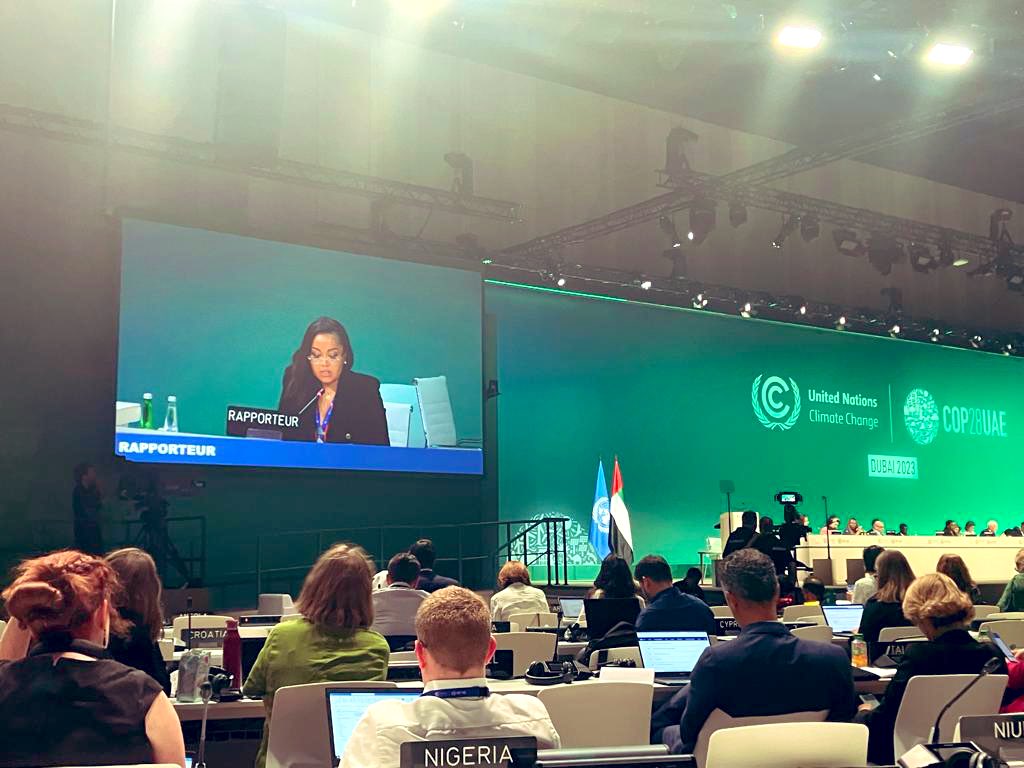In September 2024, we welcomed the first cohort of students enrolled in our new MSt in Climate, Environmental, and Urban Policy. Now, with the cohort back in Cambridge for their second residential, we catch up with them to find out what prompted them to join the course and how they’re finding it so far.
This is the first in a series of articles about the first cohort of the new MSt in Climate, Environmental, and Urban Policy. Read the second instalment here.
Zita Wilks
Adviser to the Gabonese President at the National Climate Council, specialising in climate diplomacy and finance

Tell us a bit about your professional background and career to date. What do you do? How did you get into the line of work you’re in?
Growing up in Gabon’s national parks as an African woman, I was profoundly influenced by my father, a distinguished British scientist and botanist who played a pivotal role in establishing the country’s national parks system. Observing him meticulously document the region’s extraordinary plant species instilled in me a deep appreciation for the delicate balance between environmental conservation and local economic vitality. This upbringing fuelled my passion and commitment to safeguarding natural ecosystems and addressing the urgent climate challenges they face.
Over the years, I have assumed various leadership roles in high-level climate negotiations under the UNFCCC, representing the interests of Africa, Gabon, and the Congo Basin. My responsibilities have included leading the African Group of Negotiators during Gabon’s presidency, serving as Rapporteur for the Subsidiary Body for Scientific and Technological Advice (SBSTA), and acting as an Alternate Board Member for Africa at the Green Climate Fund (GCF). In these capacities, I have influenced global climate policies in areas such as forest conservation, sustainable finance, and resilience-building for vulnerable regions. As the focal point for Gabon’s Nationally Designated Authority (NDA) to the GCF, I also align national climate priorities with international funding mechanisms, securing essential investments to protect the Congo Basin.
Alongside these responsibilities, I helped to establish and actively engaged in the Women Climate Leaders Network under the UNFCCC, aimed at boosting women’s involvement and leadership in climate initiatives.
Through these efforts, I aim to enhance Africa and Gabon’s position in global climate governance, fostering ambitious and equitable solutions that empower African nations and protect their abundant natural heritage for future generations.
What made you want to apply for the MSt in CEUP? How do you see the course fitting in with your longer-term personal or professional goals?
I selected the MSt in Climate, Environmental, and Urban Policy (CEUP) to enhance my technical skills and improve the policy instruments I apply to advance sustainable development throughout Africa.
The programme’s interdisciplinary framework, which integrates comprehensive academic research with practical applications, aligns with my commitment to linking local conditions, such as those in Gabon’s protected areas, with global standards.
Through targeted studies in climate science, environmental management, and urban policy, the MSt in CEUP equips me with fresh perspectives and creative strategies to tackle intricate climate issues head-on.
Ultimately, I aim to utilise this training to design and implement inclusive, impactful policies that uplift African communities while safeguarding our continent’s extraordinary biodiversity. My primary goal is to ensure that both people and ecosystems benefit from robust climate and urban planning, and the knowledge and networks acquired through the MSt in CEUP are vital stepping stones toward achieving that ambition.
I wish I had known how energising it would be to work with such a dynamic and diverse group. This has truly been a transformative aspect of the programme.
I wish I had known how energising it would be to work with such a dynamic and diverse group. This has truly been a transformative aspect of the programme.
How have you found the course so far?
The MSt in CEUP has been intellectually stimulating and personally rewarding. Engaging with peers from diverse professional and cultural backgrounds has enriched my understanding of the interplay between climate policy, urban development, and community well-being.
I greatly appreciate how the program integrates theoretical insights with practical case studies, reflecting my own experience of the harmonious relationship between thriving forests and local communities.
Furthermore, the guidance and expertise of the faculty have greatly enhanced my skills in climate governance and finance, which I can directly apply in my advisory role in Gabon.
Is there anything you wish you’d known before you applied? What would you say to someone thinking of applying for the course?
I wish I had known how energising it would be to work with such a dynamic and diverse group. This has truly been a transformative aspect of the programme.
If you are considering applying to the MSt in CEUP, I encourage you to draw on your unique background and experiences; this course offers a rare opportunity to integrate personal insights with innovative research to create a meaningful and lasting impact. I recommend embracing the programme's interdisciplinary approach and being open to broadening your perspectives on the diverse opportunities available for climate action and sustainable development. For those from regions already significantly affected by climate change, the MSt in CEUP provides essential tools, networks, and the confidence needed to instigate systemic change.

Nick Chalmers
ESG research analyst for a global asset manager

Tell us a bit about your professional background and career to date. What do you do? How did you get into the line of work you’re in?
Based out of a global asset management firm in London, I am responsible for idea generation, product development and research for the Sustainable Investments strategy suite. I work closely with fund managers to integrate sustainability objectives into new and pre-existing strategies, across all asset classes and investment styles. I am a member of both the European and North American Sustainable Investing working groups as well as the North American Stewardship & Engagement working group.
Prior to joining the Sustainable Investments (SI) team, I spent eight years in Chicago on a quantitative equity and fixed income strategy team, co-managing a suite of optimised active index models. I helped develop quantitative multi-factor index models and bring them to market. Most of these models employed some type of carbon reduction and/or ESG signal uplift. It was during the development of new ESG models that I began to work closely with the SI team and foster a deeper interest in sustainable investments.
What made you want to apply for the MSt in CEUP? How do you see the course fitting in with your longer-term personal or professional goals?
Finding materiality in ESG data and redefining how we link materiality to ESG/Sustainability signals is of paramount interest to me. As an American specifically, I need to be able to navigate the intensifying political backdrop of climate change in the United States on behalf of my firm and its clients across the globe. I believe that the intersection of climate risk mitigation and material ESG data form a strong rationale for the integration of sustainable investment practices under the umbrella of fiduciary duty. I hope to someday provide additional evidence that material sustainability & climate data should always be considered, and in many cases prioritised, in a balanced and risk-mitigated investment approach.
To earnestly explore these ideas and develop an expertise in the area, I felt I needed to return to an academic setting. The MSt in Climate, Environmental, and Urban Policy offered by the Department of Land Economy here at Cambridge was the only top program I felt would give me a holistic and fundamental understanding of the economic, legal, political and climate-science pillars underscoring humanity's transition to a sustainable net-zero carbon economy. The master’s program also provides the opportunity to provide research and complete a dissertation in a field uniquely suited to my career, all while continuing my profession.
How have you found the course so far?
I have thoroughly enjoyed the course thus far. The University of Cambridge offers a rigorous academic environment that inspires you to expand your knowledge, ask tough questions and explore new ways of thinking. The teaching staff equip you with cutting-edge ideas, tools and research. The quality of teaching and level of expertise the staff have in their respective fields is invaluable. Each new module provides an opportunity to expand my holistic understanding of the global climate transition, and I was surprised at how soon I was able to acutely apply the topics covered in the classroom to my career.
The University also allows students to audit additional classes outside of their degree, which provided me the opportunity to study other Land Economy modules and take further advantage of the world-class teaching staff.
Is there anything you wish you’d known before you applied? What would you say to someone thinking of applying for the course?
I wish I’d known more about the positive culture and vibrant extracurricular community curated by the students and staff here at the University. Cambridge really is a magical place that inspires its inhabitants to explore new ventures both in and out of the classroom. Even though the program is part-time with some hybrid distance learning, I have felt fully embraced by the academic community here. It is a wonderfully immersive learning experience. Additionally, the Department of Land Economy’s association with some leading climate institutes was a pleasant surprise that has enhanced my learning experience.
The MSt in Climate, Environmental, and Urban Policy was the only top program I felt would give me a holistic and fundamental understanding of the economic, legal, political, and climate-science pillars underscoring humanity's transition to a sustainable net-zero carbon economy.
The MSt in Climate, Environmental, and Urban Policy was the only top program I felt would give me a holistic and fundamental understanding of the economic, legal, political, and climate-science pillars underscoring humanity's transition to a sustainable net-zero carbon economy.
The MSt in Climate, Environmental, and Urban Policy is a two-year, part-time master’s course for professionals. It is taught through a combination of online distance learning and eight weeks of intensive in-person residentials in Cambridge.
Applications for September 2025 entry are open until 30 April 2025. Find out more and apply online now by visiting our course page.

